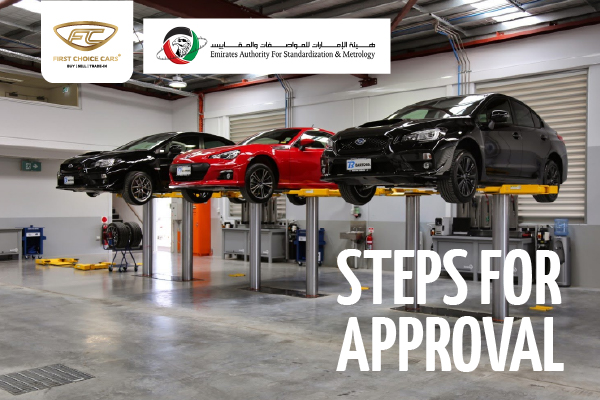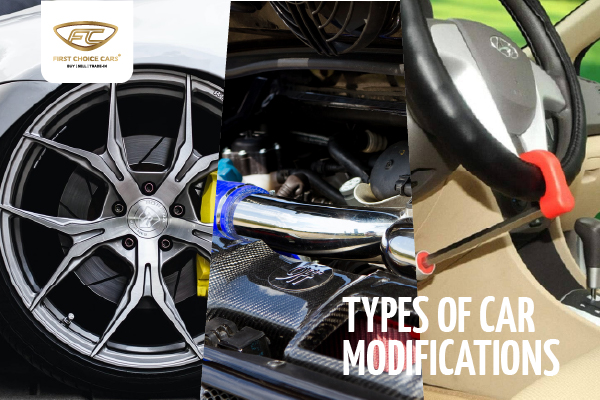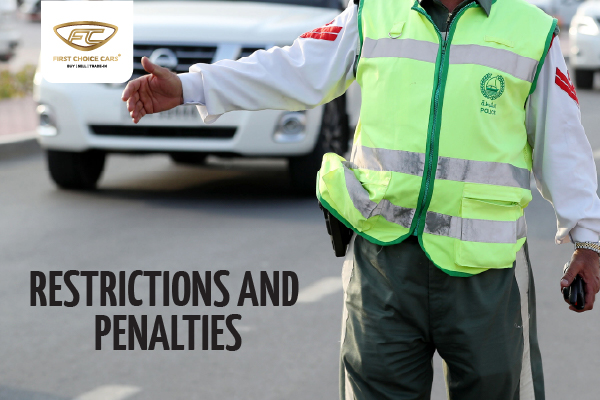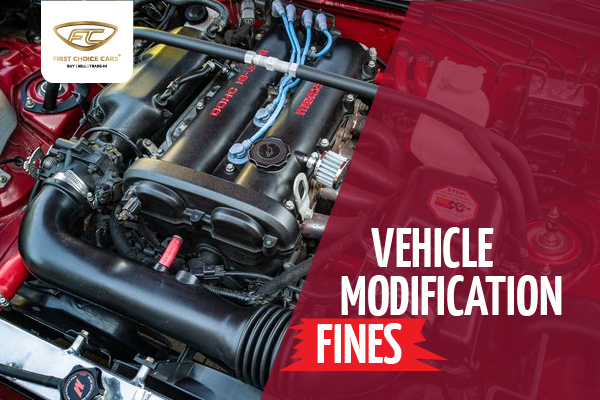Car modification enthusiasts in the UAE often find themselves at the crossroads of personalization and legality. With a growing interest in enhancing vehicle aesthetics and performance, it's crucial to understand the intricate web of regulations governing car modifications in the country. From aesthetic alterations to performance enhancements, here's everything you need to know about car modification laws in the UAE.
Legality of Car Modifications in the UAE
In 2017, the UAE cabinet implemented Decision Number 45 of 2016, which mandates that car modifications must adhere to approved standards. This decision came into effect on June 1 of the following year. The code stipulates limits on the engine, exhaust system, suspension system, and other alterations. To comply, modifications must be performed in authorized workshops, and approval must be obtained beforehand. Violations can result in hefty fines starting from Dh1,000 to 50,000 and potential jail terms, alongside confiscation of materials.
Steps for Approval:

To get modifications approved, enthusiasts must follow specific steps:
- Attend an ESMA-Approved Workshop: Seek out workshops sanctioned by the Emirates Authority For Standardisation & Metrology (ESMA).
- Submit Modifications: Present your proposed modifications to the workshop for evaluation.
- Examination and Evaluation: The workshop will examine your vehicle and assess the proposed changes.
- Issuance of Approval Certificate: Upon approval, the workshop can issue a certificate, which must be presented to the Roads and Transport Authority (RTA) during vehicle registration.
Types of Car Modifications

Car modifications in the UAE fall under three main categories:
- Aesthetic Modifications: Changes aimed at enhancing the appearance of the vehicle, including tinted windows, exterior painting, alloy changes, and sunroof installations.
- Performance-Based Modifications: Alterations designed to improve the vehicle's handling, acceleration, braking, and overall performance. This includes engine upgrades, suspension changes, brake alterations, and turbo installations.
- Car Safety Modifications: Additions geared towards enhancing safety and security, such as anti-theft devices, reversing cameras, blind-spot warning systems, and collision mitigating systems.
Allowed Modifications:
Several modifications are permissible in the UAE:
- Cosmetic Modifications: Interior changes like new seats or a sound system are acceptable if they don't compromise safety or performance.
- Window Tinting: Allowed but subject to specific regulations regarding tint percentages for front windshields and side/rear windows.
- Wheels and Tires: Changes to wheels and tires are allowed as long as they maintain safety standards.
- Lighting Modifications: Adding decorative lighting is permissible if it doesn't impair visibility for the driver or other road users.
Restrictions and Penalties:

Modifications to the engine, exhaust system, suspension, and car body are strictly prohibited. Under the Federal Traffic Law, violators may face fines and black points, while insurance coverage and vehicle registration may be compromised.
If caught driving a modified car that doesn't comply with regulations, fines can range from AED 1,000 to AED 50,000, and the vehicle may be confiscated. Additionally, insurance companies may refuse coverage, and vehicle registration may be revoked.
Vehicle Modification Fines

Ministerial Resolution No. (178) for the year 2017 on Rules and Procedures of Traffic Control establishes fines and procedures for traffic violations in accordance with regulatory standards. Here is a detailed breakdown of fines and penalties for various vehicle-related infractions.
| Violation | Fine (AED) | Black Points | Impoundment |
|---|---|---|---|
| Driving a vehicle that does not comply with security and safety measures or driving a vehicle that is unfit for driving | 500 | 12 | 30 days |
| Writing phrases or placing stickers on a vehicle without permission | 500 | - | - |
| Exceeding the permitted percentage of vehicle's tinting | 1500 | - | - |
| Tinting an unpermitted vehicle | 1500 | - | - |
| Modifying the vehicle's engine or the chassis without permission | 1000 | - | - |
| Driving with expired tires | 500 | 4 | 7 days |
| Not examining the vehicle after making core adjustments on its engine or body | 400 | - | - |
| If the lights of the vehicle are not working | 400 | 6 | - |
| In case the changing lane light signs are not working or the rear sign lights of the vehicle are not working | 400 | 2 | - |
| Changing the vehicle's color without permission | 800 | - | - |
| The rear or side lights of a trailer container are broken, or the absence of back and sidelights of a trailer container | 500 | 4 | - |
You Might Wanna Know

To give our readers a better idea of what is allowed and to what extent you may modify your vehicle, we have composed a list of frequently asked questions with answers that will help drivers avoid penalties and ensure compliance with UAE car modification laws.
Is car wrapping legal in the UAE?
Car wrapping, a popular technique for changing a vehicle's color or adding graphics, falls within legal bounds in the UAE. However, it's imperative to ensure that the car wrap adheres to certain guidelines, including proper visibility of license plates and compliance with traffic safety standards.
Can I lower my car in the UAE?
Lowering a car's suspension system is permissible in the UAE, but it must be executed within the framework of regulations. The lowered vehicle should maintain a safe ground clearance to navigate the UAE's diverse road conditions without compromising on safety.
Are car stickers allowed in the UAE?
Car stickers are permitted in the UAE, provided they do not obstruct the driver's view or contain offensive or inappropriate content. Adhering to these guidelines ensures that car stickers serve as a form of personal expression without posing hazards on the road.
What happens if you modify your car?
Unauthorized car modifications can result in penalties and fines in the UAE. Law enforcement agencies enforce regulations to uphold road safety standards and prevent modifications that may compromise vehicle integrity or pose risks to drivers and pedestrians.
Is muffler delete legal in UAE?
Altering a car's exhaust system, including muffler deletion, is generally not permitted in the UAE. The modification can lead to increased noise pollution and environmental concerns, prompting authorities to enforce regulations to maintain a harmonious urban environment.
Is it possible to change the car color in the UAE?
Changing a car's color is permissible in the UAE, provided it is done through legal channels and documented accordingly. Owners must adhere to procedures outlined by regulatory authorities to ensure transparency and compliance with applicable laws.
Fun Fact
Did you know the UAE hosts an annual car modification exhibition showcasing cutting-edge trends and innovations in automotive customization? Enthusiasts and industry professionals converge to explore the latest advancements, demonstrating the nation's vibrant car culture and passion for innovation.
Car Modification Culture in the UAE

Car modification culture in the UAE is vibrant and dynamic, reflecting the nation's passion for automotive innovation and creativity. Here are some insights into the unique facets of car customization in the UAE:
- Exhibitions and Events: The UAE hosts an array of car modification exhibitions and events where enthusiasts and industry professionals converge to explore the latest trends and innovations in automotive customization. These gatherings showcase the nation's thriving car culture and provide platforms for networking and exchanging ideas.
- Specialized Workshops and Services: From bespoke car detailing to performance upgrades, the UAE boasts a myriad of specialized workshops and services catering to the needs of car enthusiasts. These establishments offer tailored solutions and expert advice to help owners realize their vision for their vehicles.
- Community Engagement: Car modification enthusiasts in the UAE often participate in community-driven initiatives and gatherings, fostering camaraderie and mutual appreciation for automotive craftsmanship. These interactions contribute to the sense of belonging and shared passion within the car modification community.
In conclusion, while car modification allows for personal expression and customization, it's imperative to navigate the legal framework in the UAE diligently. By adhering to regulations and seeking approval for modifications, enthusiasts can enjoy a safe and compliant driving experience while expressing their passion for automotive innovation. Familiarizing oneself with the guidelines ensures seamless integration of modifications while upholding safety and legal standards in the UAE's dynamic automotive landscape.
Disclaimer: All information, including pricing, vehicle details, and legal requirements, is accurate at the time of publication but may be subject to change due to market conditions or policy updates. While First Choice Cars makes every effort to ensure the accuracy of the information provided, we hold no responsibility for any errors, omissions, or outdated content. We recommend contacting our team directly to confirm the latest details before making any decisions.
